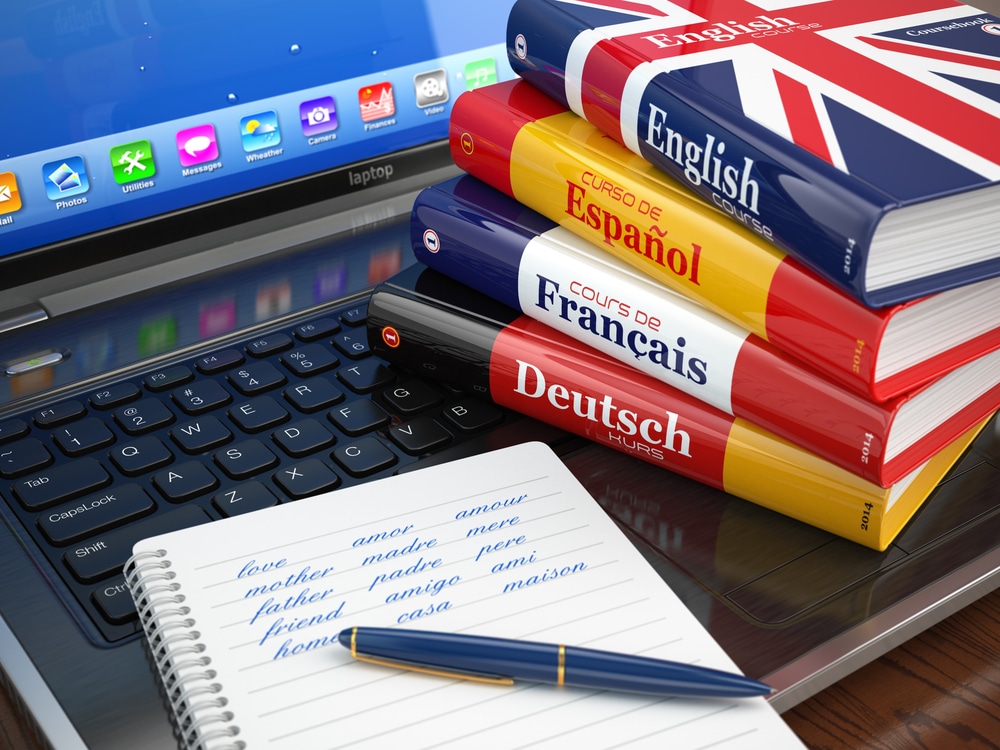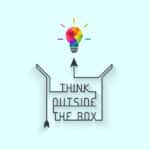In this post, we will answer this burning question and tackle the best way to learn a new language.
Let’s begin!
When Learning a Language: Do You Need a Dictionary?
A dictionary does have its place when it comes to learning a new language. You can find valuable new information such as a word’s definition, if it’s feminine or masculine, what part of speech, and other grammatical information. But did you know that if you solely use dictionaries to learn a new language, you will do more harm than good? A bilingual dictionary should only be used for translating a word between two languages, not to gain fluency.
If you run to a dictionary for every new word that you encounter, you will burn out with the language you are learning. So you should not depend on a dictionary, but instead, learn the language as naturally as possible.
The Best Way To Learn A New Language
A dictionary is a useful, but not an all-important tool in your language-learning arsenal.
Why?
Simply because a language dictionary does not give you context that will help you better understand a language and gain fluency. It’s much better to understand the context instead of just looking up the definition. Because you will now know how to use that word in everyday conversations.
So this is what we recommend you should start doing:
When you come upon a new word when reading, don’t stop reading. Read the entire sentence or even paragraph and grasp the context and the word’s meaning. If by the end, you still don’t understand, then you can grab your dictionary to learn more about the word. After that, read the sentence or paragraph again, so this time you’ll remember the word and its context, which helps you keep it in your long-term memory.
And the same goes for listening exercises as well. If you are listening to a podcast or watching a movie or YouTube video, then you should do the same and listen to it fully to get the full context. Or jot it down if you have to. At the end, you can then either discuss it with your language tutor or search for it in the dictionary. Allow yourself the time to understand it, and you will remember it long term.
3 Ways A Language Dictionary May Not Be Helpful
1. Untranslatable Words
Untranslatable words or phrases? What are those?
Well, those are words that are unique to their language of origin. They have no direct translation (or equivalent) in other languages. Untranslatable words are beautiful since they give us a window into the cultures of the people, from which they came about.
A few examples of these are:
- Yugen (Japanese): A profound, mysterious sense of the beauty of the universe
- Ré nao (Chinese): A fun, lively place with an inviting vibe that makes you want to be there
- Dépaysement (French): A feeling of restlessness that comes with being away from your country of origin and feeling like a foreigner.
- Friolero (Spanish): A person who is particularly susceptible and sensitive to cold weather
2. Words That Have Many Translations
A foreign word can have many meanings. And as a beginner, you may not know the correct meaning of the word, especially if you are not sure about its context. For example, did you know in the Inuit language, there are 50 different meanings for the word snow?
At the same time, you may meet words that are incompatible with English, making it even harder to translate the word correctly. For example, the Japanese word Aoi can mean blue or green. So it’s important that you understand the context that the word is used in.
3. English Words Can Be a Different Part Of Speech
This hiccup is more common in the English language compared to other languages. But it’s still important to know this when it comes to learning a new language.
For instance, the English word best can be used as an adjective, adverb, and verb. But the issue comes up when you are translating the word. When you translate best to Russian, there are various Russian words that may come up.
- Best (adjective): Лучший
- Best (adverb): лучше всего
- Best (verb): перехитрить
Using an Online Dictionary or Tutor
Obviously, a dictionary won’t be helpful for these situations. But we have a simple solution to this problem.
One, you can use an online dictionary that also gets feedback from others. It’s like a Wikipedia for translating. Our favorite is wordreference.com. Here, you can ask questions to native speakers, which allows you to get many responses. Then, you can see which translation best matches what you’re watching or reading.
Two, hiring a professional online language tutor who is fluent in more than one language will help you tackle these problems and not depend only on your dictionary. Your online language tutor can give you everything that comes with your dictionary plus giving you the full context. If you are looking to hire a language tutor who can steer you on the path to complete mastery of a language, contact us and take advantage of our $35 trial class today!





